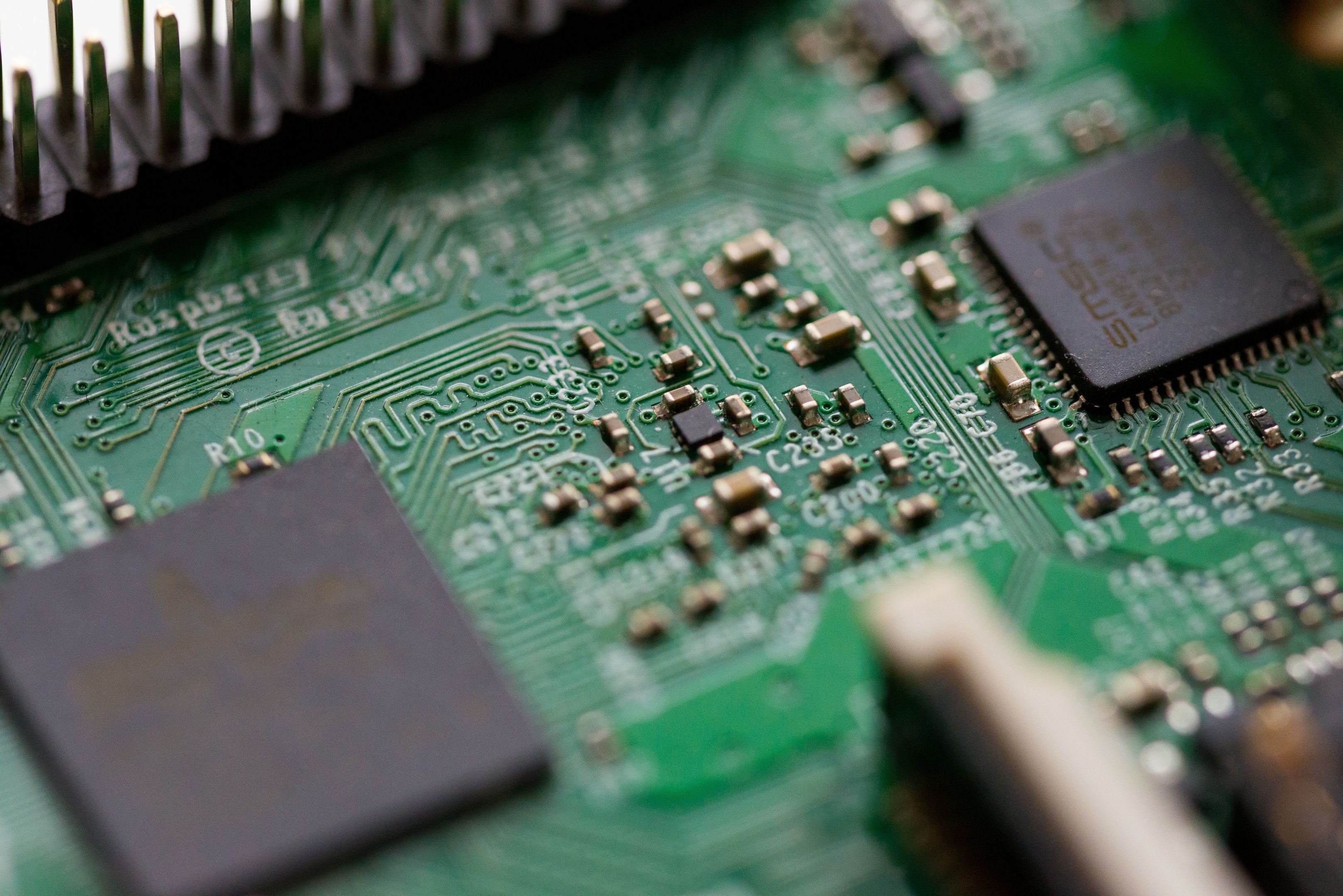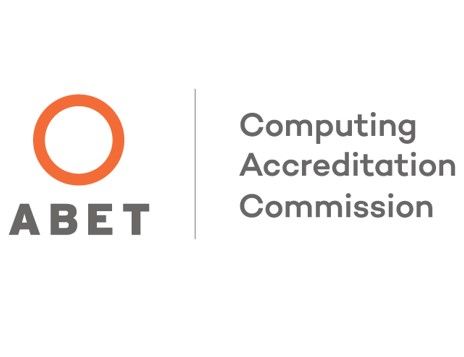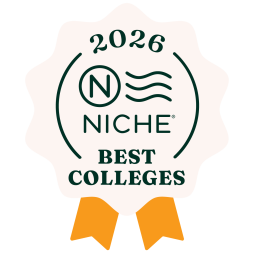
Bachelor of Science in Computer Engineering
Design the Technology of Tomorrow with a Computer Engineering Degree
Do you love working with computers? Have you ever taken one apart or assembled your own computer just for fun? If that sounds like you, then you might have what it takes to become a computer engineer.
A computer engineer researches, designs, and develops computer hardware, including computer chips, microprocessors, circuit boards, computer systems, and related equipment. Our Bachelor of Science (BS) in Computer Engineering provides an overview of the foundational principles to design and build the computer hardware of tomorrow.
In this program, you can study a combination of computer science and electrical engineering in order to focus on producing computers. You can study not only how to build computers but also how to design and conduct experiments and analyze the data from those tests.
The benefits of this degree extend far beyond the classroom. In a world increasingly driven by technology, your knowledge in computer science can help you strive for the forefront of innovation. Whether it’s developing cutting-edge software, safeguarding cyberspaces, or optimizing data-driven strategies, the skills you acquire here can have many applications. This means there is not only a wide range of career opportunities you can pursue but also the potential for significant contributions to technological advancement and societal progress.
Overall, our goal is to develop Christ-centered men and women with the values, knowledge, and skills essential to be a positive force in computer engineering-related industries. Our professors seek to know you individually and impart the knowledge and ability they possess to identify and solve engineering problems.
Credit Hours
View CoursesNext start date: Aug 24, 2026

ABET CAC Accredited
Highlights
Highlights of Our Undergraduate Computer Engineering Degree
Get Hands-On with Lab-Integrated Courses
Many of your courses are paired with lab experiences, giving you a chance to apply what you’re learning right away. This hands-on approach can help reinforce complex concepts and give you a clearer understanding of how engineering principles work in practice.
Access Cutting-Edge Technology
You’ll work with advanced tools and technology that reflect current industry standards. From simulation software to lab equipment, the resources available to you can support meaningful exploration and skill development.
Build Relationships with Expert Faculty
Your professors aren’t just experts in the field – they’re also committed to mentoring you personally. In Liberty’s Christ-centered environment, you can be supported both academically and spiritually as you grow in knowledge and character.
Gain Real-World Experience Through Internships
You may have the opportunity to intern with Fortune 500 companies or government agencies. These internships can provide hands-on training and, in many cases, paid experience that can help offset living expenses.
Explore a Versatile, Multidisciplinary Curriculum
This program blends electrical engineering, computer science, and hardware-software integration, offering you a well-rounded foundation. With exposure to multiple disciplines, you can explore different areas of interest within the engineering field.
Develop Solutions That Make a Difference
You’ll be encouraged to approach engineering problems with creativity, technical skill, and ethical purpose. Whether you’re designing embedded systems or working on digital circuits, you can learn how to build technology that serves others and honors your values.
Career Potential
What Can You Do with Our BS in Computer Engineering Degree?
Liberty University’s Bachelor’s in Computer Engineering can help prepare you to pursue the following occupations:
- Aerospace engineer
- Computer engineer
- Computer hardware systems engineer
- Computer network architect
- Robotics computer engineer


#2 Best College Campus in America
At Liberty, you’ll find an affordable, high-quality education designed to help equip students like you for the real world. Our commitment to excellence has earned us recognition as the #2 Best College Campus in America by Niche.com for 2026.
Earning your degree from a nonprofit university with state-of-the-art resources like ours can help set you apart from your peers.
Courses
What Will You Study in Our Computer Engineering Bachelor’s Degree Program?
In our BS in Computer Engineering degree, you can study how to apply probability and statistics appropriately. In addition, you can gain knowledge of scientific and mathematical principles necessary to analyze and design complex digital systems. This can be applied to the architecture of computers and to understanding the components of a computer.
As you progress, your journey can lead you into more complex areas, such as advanced programming concepts. This is where your foundational skills can be enhanced and challenged. You’ll explore how to write more sophisticated code and tackle more complex programming tasks. This stage is critical in helping you understand the intricacies of software development, which can help prepare you for the challenges of real-world applications.
Algorithms and data structures form another pivotal component of your education. Here, you will explore the underlying mechanisms that power efficient software. Understanding these concepts is key to optimizing performance and solving computational problems effectively. This knowledge is not just academic; it’s practical and often sought after in the tech industry.
Networking and logic design will also be key areas of focus. These subjects can help you develop an understanding of how computers communicate with each other and how logical reasoning is applied to create complex electronic systems. This knowledge can be beneficial to anyone looking to work in areas such as network administration, cybersecurity, or hardware design.
Your educational journey also incorporates studies in electrical and electronic circuits, signals and systems, communication systems, and engineering economics. This comprehensive approach can help you as you strive to become a programmer and a well-rounded computer scientist capable of understanding and contributing to various aspects of technology.
Featured Computer Engineering Courses
ENGC 361 – Computer Architecture
ENGC 465 – Introduction to Computer Networks
ENGE 341 – Communication Systems
ENGR 381 – Engineering Design Introduction
Degree Information
- This program falls under the School of Engineering
- View the Degree Completion Plan
- Check out our course catalog
- Transfer in up to 75% of the degree total
BENEFITS
Why Choose Liberty’s Bachelor’s in Civil Engineering Degree?
Turn Classroom Concepts into Real-World Practice
At Liberty, your education doesn’t stop at theory – you’re given chances to bring ideas to life. From designing systems in labs to applying your knowledge in hands-on projects, you’ll have space to experiment, troubleshoot, and grow.
These practical experiences can sharpen your understanding of hardware and software integration. By the time you reach graduation, you may have already tackled challenges similar to those in the industry.
Tap Into a Network of Industry Connections
Liberty maintains relationships with several companies that have welcomed students into internships. During your senior year, you have the opportunity to apply your skills in professional settings, including Fortune 500 companies and federal agencies.
These opportunities can give you exposure to real engineering workflows and allow you to work alongside seasoned professionals. Some internships are also paid, which can help you support yourself while gaining meaningful experience.
Serve a Higher Purpose Through Technology
If you’re passionate about making a difference, Liberty encourages you to put your technical skills to work in service-oriented roles. Whether supporting a mission organization or solving real-world problems through tech, your abilities may contribute to causes that extend far beyond campus.
These experiences can give you insight into how your work can impact communities and support meaningful initiatives. It’s a chance to grow not only as an engineer but also as a person of purpose.
Learn from Faculty Who Invest in Your Growth
You’ll study under professors who combine technical expertise with a personal commitment to your development. They’re not just instructors – they’re mentors who take the time to support your academic, professional, and spiritual journey.
This personal connection can create a more meaningful college experience and help you stay motivated as you navigate challenging material. Within this supportive environment, you’re encouraged to pursue excellence while staying grounded in your values.
Admissions
How Do You Become an Undergraduate Computer Engineering Student?
Every application is reviewed by the admission committee on a case-by-case basis, meaning there are no set minimums for acceptance. However, all applicants must submit the following documents* for admission:
- Admission application
- Official high school transcripts
- Official college transcripts (if applicable)
- Admission essay
Results from the CLT, SAT, or ACT are not required for admission, but may be used in consideration for merit-based aid.
*Note that additional documentation may be requested by the admission committee after your application has been received.

Have Questions?
We’ll make sure you have the information you need to take your next step.